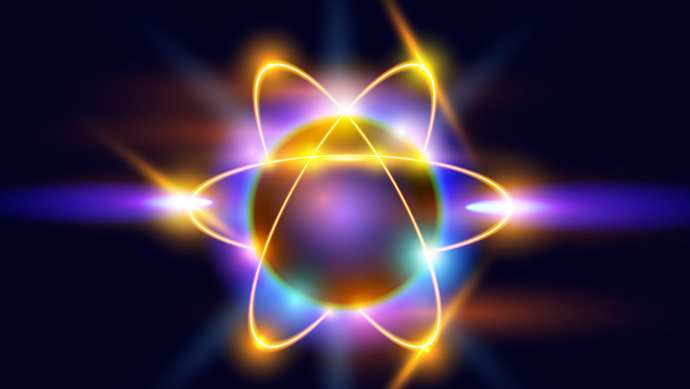Researchers from the Manipal Centre of Natural Sciences at Manipal University, Karnataka, India, with collaborators from GSI, Germany, have succeeded in discovering four new atomic nuclei to be added to the Chart of the Nuclides. This study was carried out under the ambit of the Manipal University-GSI-Giessen collaboration which focuses on developing new methods of synthesis for the super heavy elements. The newly discovered, exotic nuclei are one isotope each of the heavy elements berkelium and neptunium and two isotopes of the element americium.
Mr. H. M. Devaraja a PhD student at MCNS, Manipal University participated in experimental work along with an international team of researchers at GSI Helmholtzzentrum für Schwerionenforschung. Other participants included scientists from the Justus Liebig University Giessen, Germany, the Japan Atomic Energy Agency, Lawrence Livermore National Laboratory in the USA, and the Joint Institute for Nuclear Research in Russia. The results are published in Physics Letters B. “It was my dream to be able to discover something during my PhD,” Devaraja said and added: “Am grateful to Manipal Centre for Natural Sciences, Manipal University all involved in my research for making it possible”.
The newly discovered isotopes have fewer neutrons and are lighter than the previously known isotopes of the respective elements. To date, the known Periodic Table comprises over 3,000 isotopes of 114 chemical elements. According to scientific estimates, more than 4,000 additional, undiscovered isotopes should also exist. “By using this method, we have succeeded in generating many different atomic nuclei at once,” says Dr Sophia Heinz who headed the experiment at GSI. “Our results are especially important for the study of super-heavy elements. New isotopes, in particular those of super-heavy elements, which contain an especially large number of neutrons, cannot be made by any other method. Experiments aimed at creating these neutron-rich nuclei are already being prepared.”
The conceptual design of the next generation separator “SuperSHIP” which will be optimized to measure these rare and exotic events through new production methods is also underway at Manipal as part of the continuing collaboration with GSI and Giessen.
